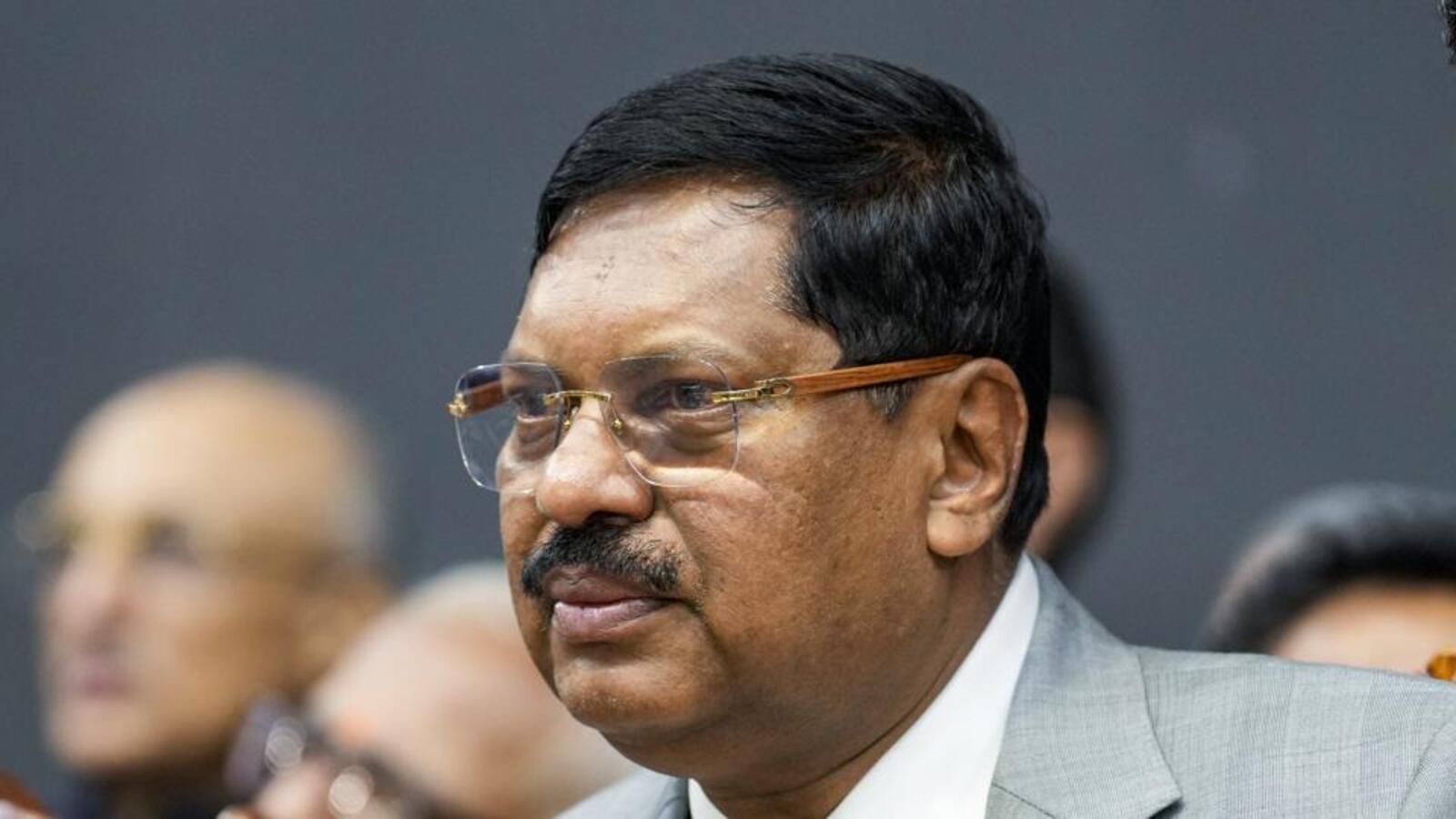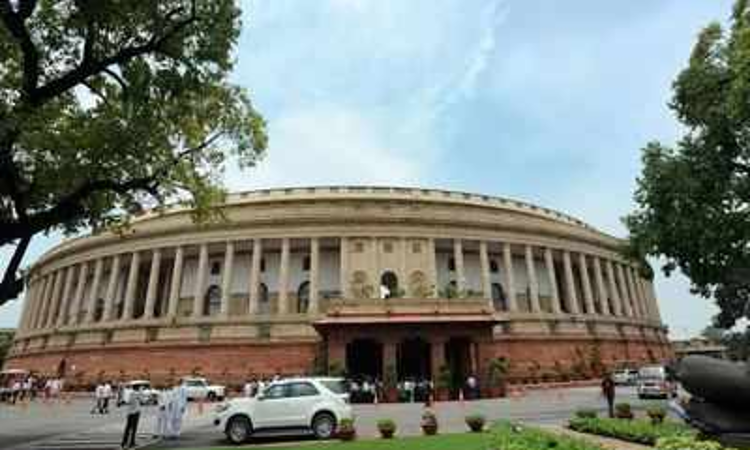Doctrine of Lis Pendens

- 23 Oct 2025
In News:
The Delhi High Court has recently ruled that courts possess the discretion to exempt a property from the application of the doctrine of lis pendens under certain circumstances. The decision aims to protect genuine property owners from vexatious or frivolous litigation that seeks to unjustly restrict the transfer or enjoyment of property rights.
About the Doctrine of Lis Pendens
- The term Lis Pendens is derived from Latin, meaning “pending litigation.”
- In India, the doctrine is codified under Section 52 of the Transfer of Property Act (TPA), 1882.
- The principle holds that any transfer of immovable property during the pendency of a legal dispute concerning that property will be subject to the outcome of the litigation.
- The doctrine does not invalidate the transfer but makes it subordinate to the result of the pending case.
- Its primary objective is to prevent one party from defeating the rights of another through the transfer of the disputed property while the court proceedings are ongoing.
Essence and Legal Rationale
- The doctrine seeks to maintain the status quo of property ownership during litigation, ensuring that the final judgment of a competent court remains effective despite any transactions made during the pendency of the case.
- It prevents the multiplicity of proceedings and protects the interests of the rightful claimant, as the transferee of such property is bound by the court’s decree.
Key Conditions for Applicability
- A suit or proceeding must be pending before a court of competent jurisdiction.
- The dispute must directly relate to the title or rights of an immovable property.
- The property must be specifically identifiable and properly described in the suit.
- The transfer of the property must occur during the pendency of the litigation.
- The suit must be bona fide, i.e., not collusive or fraudulent in nature.
If these conditions are met, any transfer made during the lawsuit will not override the court’s final decision.
Non-Applicability of the Doctrine
The doctrine does not apply in certain cases, including:
- When the mortgagor transfers property under a power explicitly granted in the mortgage deed.
- When the transfer affects only the transferor’s interest and not the other party’s rights.
- In collusive suits—where the proceedings are staged to defraud others.
- When the property is not properly described, making its identification impossible.
- Where the right to the property is not directly in dispute and alienation has been permitted.
Recent Delhi High Court Ruling
- A Division Bench of the Delhi High Court, led by Justice Anil Kshetarpal, clarified that the doctrine of lis pendens is not absolute and can be relaxed by judicial discretion.
- The Court held that in cases where litigation is filed with mala fide intent or used as a tool to harass legitimate owners, the court may exempt the concerned property from the operation of the doctrine to protect bona fide ownership and prevent misuse of legal processes.
- This interpretation strengthens the judiciary’s power to distinguish genuine disputes from vexatious claims, thereby ensuring fairness and efficiency in property litigation.
Significance of the Judgment
- Protects Genuine Owners: Shields rightful property holders from baseless legal actions aimed at stalling legitimate transactions.
- Prevents Misuse of Law: Discourages abuse of the doctrine for fraudulent or extortionate purposes.
- Balances Rights and Justice: Ensures that while the doctrine maintains judicial control over disputed properties, it does not become a weapon against bona fide parties.
- Clarifies Judicial Discretion: Affirms that courts have the inherent authority to exclude specific cases from the doctrine’s ambit when equity demands.
Doctrine of Escheat

- 19 Sep 2025
In News:
The Supreme Court of India has recently ruled that a State Government cannot invoke the Doctrine of Escheat under Section 29 of the Hindu Succession Act, 1956, when a valid Will has been executed and probate has been granted by a competent court. The judgment underscores that the principle of escheat applies only as a last resort, when an individual dies intestate (without a Will) and without legal heirs.
What is the Doctrine of Escheat?
The Doctrine of Escheat is a long-standing legal principle ensuring that no property remains ownerless. When a person dies without a Will and without any legal heirs, ownership of the property reverts to the State.
This doctrine safeguards social and legal order, ensuring that property does not remain unclaimed or misused.
Situations Covered Under Escheat:
- Death without a Will (Intestate): When a person dies without making a valid Will and leaves no heirs.
- Unclaimed or Abandoned Property: When ownership cannot be established for a prolonged period.
The underlying idea is that property must always have an identifiable owner, and in the absence of heirs, the State becomes the ultimate owner.
Historical Background
- The term “escheat” originates from the Old French word “eschete”, meaning “to fall to.”
- The concept dates back to the feudal system of medieval Europe, where land held by a tenant reverted to the lord if the tenant died without an heir or was convicted of crimes such as treason.
- Over time, this right passed from feudal lords to the monarch or the state, ensuring continuous control over land and preventing property from becoming ownerless.
Doctrine of Escheat in Modern Legal Systems
In contemporary jurisprudence, escheat prevents property from remaining in legal limbo. The State assumes ownership of such assets, either permanently or temporarily, until legitimate claimants are found.
Different countries have codified laws governing this process, ensuring fairness and transparency.
Doctrine of Escheat in India
In the Indian legal framework, the doctrine operates through two main provisions:
- Article 296 of the Constitution of India:Provides that any property that escheats or lacks legal ownership vests in the State or Union, depending on where the property is situated.
- Section 29 of the Hindu Succession Act, 1956:States that if a Hindu dies intestate and without any legal heirs, the property escheats to the Government, which assumes ownership subject to all legal obligations.
Supreme Court’s Observation
In the recent judgment, the Supreme Court held that:
- The Doctrine of Escheat is a remedy of last resort and cannot be invoked when a valid Will exists.
- Once a Will is probated (i.e., validated by a competent court), the State has no locus to challenge the testamentary disposition under the garb of escheat.
- The testator’s intent must prevail, and the property should devolve strictly as per the terms of the Will.
This ruling reinforces the sanctity of testamentary freedom and clarifies the limited applicability of escheat provisions.
Significance of the Ruling
- Protects Individual Property Rights: Upholds the right of individuals to dispose of their property through a valid Will.
- Limits State Overreach: Prevents arbitrary claims by the State over private property.
- Clarifies Legal Interpretation: Defines the precise scope of Section 29 of the Hindu Succession Act and Article 296 of the Constitution.
- Ensures Legal Certainty: Strengthens property succession jurisprudence in India.
Doctrine of Contributory Negligence

- 15 Sep 2025
In News:
The Andhra Pradesh High Court has recently clarified that the doctrine of contributory negligence cannot be invoked as a defence in criminal prosecutions. It held that a person driving rashly and negligently, causing death, will be held liable under Section 304A of the Indian Penal Code (IPC), even if the victim was partly negligent. This landmark ruling reinforces the distinction between civil liability for damages and criminal liability for offences.
Doctrine of Contributory Negligence: Concept
- Contributory negligence rests on the principle that every individual must exercise reasonable care for their own safety.
- If an injured party’s negligence contributes to the harm, they may be considered partly responsible.
- The doctrine stems from the legal maxim “Volenti non fit injuria” — one who consents to risk cannot later claim damages.
- Example: If a pedestrian crosses the road carelessly and is hit by a rash driver, the pedestrian’s conduct may reduce their claim for compensation in civil law.
Civil Law vs. Criminal Law Application
- Civil Law:
- Contributory negligence acts as a defence, reducing damages payable by the defendant.
- Indian courts often apply the principle of comparative negligence, apportioning liability based on the degree of fault of each party.
- Burden of proof lies on the defendant to show that the plaintiff’s negligence contributed to the harm.
- Criminal Law:
- The AP High Court clarified that contributory negligence is not a defence to criminal liability.
- Section 304A IPC punishes causing death by rash or negligent act, irrespective of victim’s conduct.
- Even if the victim was negligent, the accused cannot escape responsibility if their rashness directly caused the death.
Judicial Reasoning and Precedent
- Criminal liability is premised on breach of legal duty and societal responsibility, not merely individual claims of fairness.
- If contributory negligence were allowed as a defence in criminal law, it could dilute accountability and weaken deterrence against rash driving.
- By upholding strict liability under Section 304A IPC, the court reinforced that public safety outweighs individual contributory fault.
Indian Legal Position
- India does not have a codified statute on contributory negligence; instead, principles are derived from common law and judicial interpretation.
- In civil cases, courts exercise discretion to distribute damages fairly.
- In criminal prosecutions, however, the focus remains on the offender’s culpability, not the victim’s carelessness.
Significance of the Ruling
- Public Safety: Strengthens accountability for rash driving and negligent acts, a major cause of road fatalities in India.
- Doctrinal Clarity: Clearly separates the scope of contributory negligence in civil law from its inapplicability in criminal law.
- Victim-Centric Approach: Ensures justice is not denied to victims’ families on grounds of partial fault.
- Judicial Consistency: Aligns with the principle that criminal law serves deterrence and social protection, unlike civil law which primarily compensates.
Bar Council of India permits Foreign Lawyers in India

- 06 Jun 2025
In News:
Chief Justice of India (CJI) B.R. Gavai lauded the Bar Council of India (BCI) for amending rules to allow foreign legal professionals and law firms to advise on non-litigious matters in India.
Key Features of BCI’s Reform (2024 Update to 2022 Rules):
- Scope of Practice for Foreign Lawyers:
- Permitted: Advisory roles in foreign law, international law, and arbitration.
- Prohibited: Appearing in Indian courts/tribunals or advising on Indian law.
- Nature of Work Allowed: Only non-litigious activities.
Rationale Behind the Reform:
- Boosting Arbitration Quality:
- India ranks 5th globally in arbitration case volume (ICC 2024 Report).
- Reform aimed at enhancing arbitration standards via foreign expertise.
- Facilitating Legal Reciprocity:
- Enables Indian lawyers to access international legal markets.
- Promotes mutual recognition and cooperation with foreign bar associations.
- Supporting Institutional Arbitration:
- Benefits centres like:
- Mumbai Centre for International Arbitration (MCIA)
- Delhi International Arbitration Centre (DIAC)
- India International Arbitration Centre (IIAC)
- Benefits centres like:
- Filling Talent Gaps:
- Expertise needed in fields such as:
- Climate litigation
- Technology and data law
- Cross-border commercial arbitration
- Expertise needed in fields such as:
Challenges and Concerns:
- Market Displacement Fears: Indian lawyers worry about reduced share in arbitration and consultancy services.
- Reciprocity Barriers: Unequal treatment in countries with restrictive legal entry norms.
- Uneven Playing Field: Foreign firms possess larger capital, advanced tech, and international clientele.
- Regulatory Oversight Needed: BCI must ensure strict compliance to maintain sovereignty of Indian legal framework.
Significance of the Reform:
- Positioning India as an Arbitration Hub: Enhances India's global legal profile, especially in infrastructure and trade.
- Strengthening Indo-UK Legal Cooperation: Reform highlighted during Indo-UK Arbitration Conference, deepening bilateral ties.
- Modernizing Legal Sector: Brings global legal best practices and innovation to India.
- Upholding Indian Legal Integrity: Complies with the Advocates Act, 1961 – no foreign practice in Indian law.
- Opportunities for Indian Lawyers Abroad: Reciprocity clause allows dual practice in India and foreign jurisdictions.
Mediation Bill, 2023 (Live law)

- 08 Aug 2023
What is the News ?
The Parliament has passed the Mediation Bill 2023 to reduce pendency of court cases.
Facts About:
The Mediation Bill, 2021
- It was introduced in the Rajya Sabha in December, 2021, with the Parliamentary Standing Committee being tasked with a review of the Bill.
- The Bill aims at institutionalising mediation and establishing the Mediation Council of India.
Key Features of the Bill
Pre-litigation mediation
- Parties must attempt to settle civil or commercial disputes by mediation before approaching any court or certain tribunals.
- Even if they fail to reach a settlement through pre-litigation mediation, the court or tribunal may at any stage refer the parties to mediation if they request for the same.
Disputes not fit for mediation
- The Bill contains a list of disputes which are not fit for mediation.
- These include disputesrelating to claims against minors or persons of unsound mind, involving criminal prosecution, and affecting the rights of third parties. The central government may amend this list.
Applicability
- The Bill will apply to mediations conducted in India:
involving only domestic parties
involving at least one foreign party and relating to a commercial dispute (i.e., international mediation)
if the mediation agreement states that mediation will be as per this Bill.
- If the central or state government is a party, the Bill will apply to commercial disputes, and other disputes as notified.
Mediation process
- Mediation proceedings will be confidential, and must be completed within 180 days (may be extended by 180 days by the parties).
- A party may withdraw from mediation after two sessions.
- Court annexed mediation must be conducted as per the rules framed by the Supreme Court or High Courts.
Mediators
- Mediators may be appointed bythe parties by agreement, a mediation service provider (an institution administering mediation).
- They must disclose any conflict of interest that may raise doubts on their independence.
- Parties may then choose to replace the mediator.
Concerns Highlighted by the Parliamentary Standing Committee
Pre-Litigation
- The panel highlighted many key issues including mandatory and coercive nature of pre-litigation mediation.
- Making pre-litigation mediation necessary may result in case delays and provide another instrument in the hands of truant litigants to prolong case disposition.
Clause 26: The panel was against Clause 26of the draft which gives power to the SC or the High court to make laws of pre-litigation according to them.
Non-Applicability to Non-Commercial Disputes: The members questioned the non-applicability of the provisions of the Bill to disputes/matters of non-commercial nature involving the Government and its agencies.
Appointments: The panel had discussions about the qualifications and appointment of the Chairperson and Members of the proposed Mediation Council.
Recommendations Accepted by the Union Cabinet
Reducing the Time for Concluding a Mediation
- The Union cabinet has accepted the recommendations of the standing committee by reducing the time for concluding a mediation from 180 to 90 days.
Making Pre-Litigation Mediation Voluntary
- The recommendation for making pre-litigation mediation voluntary instead of mandatory was also much needed as voluntariness is an essential principle of mediation.
Recognition and Enforcement of Agreements
- Recognition and enforcement of settlement agreements arising out of mediation is a welcome move.
- This is also in line with India’s commitment as a signatory to the United Nations Convention on International Settlement Agreements Resulting from Mediation (Singapore Convention).
Provisions of the Final Bill that Require a Relook
Limited Grounds to Challenge a Settlement Agreement
- The limited grounds listed to challenge the enforcement of a settlement agreement and the fact that a period of 90 days is given to raise the challenge need a relook.
- The fact that a settlement agreement is essentially a contract between the parties; there are several instances where grounds for challenge such as fraud and impersonation are detected at a later stage.
Technical Flaws in Clause 8
- Clause 8 of the Bill entitles a party to move the Court before the commencement or during mediation for interim relief but only in “exceptional circumstances”.
- The term “exceptional circumstances”is not only undefined in the Bill but is also abnormal to the settled principles of seeking interim relief before the civil courts.
- Moreover, there is no remedy of appeal available against an order passed under this proposed section.
The Concept of Online and Community Mediation
- A recent Niti Aayog report reveals that only 55 per cent of India have access to the internet and only 27 per cent possess compatible devices.
- For online mediation to be a success, the government will have to scale the bandwidth accessibility to remote parts of the country.
- As for community mediation, the Bill makes it mandatory to have a panel of three mediators.This requirement is unnecessary and impinges on the flexibility that mediation brings.
Restricting the Government’s Participation in Mediation to only Commercial Disputes
- The real issue is that the government is the biggest litigant in the country.
- Restricting the ability of the government to participate in mediation proceedings arising only out of commercial disputes goes against the objective of enacting the legislation.
Way Forward
Legal Aid Setup: Setting up legal aid or access to justice clinics with adequate IT infrastructure could address the issue of online mediation.
Inclusion of Government Related Disputes in the Bill
- The standing committee had also recommended that government-related disputes be included in the Bill.
- The common litigant sees the government as an adversary before the court of law. The Bill provided a golden opportunity to the government to change that perception.
- This will inspire confidence amongst all stakeholders but would also help in reducing pendency backlog.
Conclusion
Mediation should be promoted as a preferred and voluntary mode of securing justice.
Although the legislature may have intended to lighten the load on the judiciary, the law needs to be improved because it may cause a delay in the administration of justice and raise the cost of litigation.
Source: https://www.livelaw.in/news-updates/parliament-passes-mediation-bill-234671
